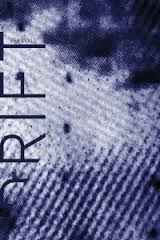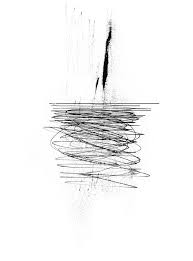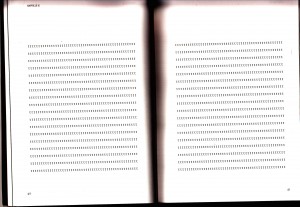 The first story in this amazing book is one I always love: an old sailor on icy seas, looking for home but not finding it because “seafaring is seafodder heart / humbling” (26).
The first story in this amazing book is one I always love: an old sailor on icy seas, looking for home but not finding it because “seafaring is seafodder heart / humbling” (26).
I can make my sorry tale right soggy truth. (25)
Blow wind / blow, anon am I. (25)
The second story is the true history of the “Left-to-Die Boat,” packed full of Algerian refugees, seen but not rescued by assorted NATO vessels in March 2011.
Show me the wind. (46)
Caroline Bergvall’s Drift was my first post-grading book of the summer. It was so good that I stayed up late to finish it, then re-read it twice more the next two nights. Gorgeous, intricate, impassioned writing. Bits of it may figure in my NCS talk in July, which is also about the Seafarer — but for now I want to luxuriate in its rawness, its ambition, and its willingness to engage.
Let the tides shake your life. (110)
There’s so much to love in this mash-up of of twenty-first century tragedy and Anglo-Saxon lament. Bergvall mines the medieval poem “The Seafarer” for the core experience of oceanic disorientation, the bitter flavor of that “salt of the mind” (159), the partial recompense of the “ship of song” (144),
For a minute there I lose myself. (42)
She starts with some line drawings before the poem begins.
One of the places she takes us is “hafville.” “Did not know where I was going hafville. Had fear wildering hafville” (42). We are not alone there:
Major Tom hafville
Li Bai hafville
Rimbaud hafville
Shelley hafville
Amelia Aerhart hafville
Jeff Buckley hafville
Spalding Gray hafville…
Later on, in the Log section, she tells us what hafville is: “sea wilderness, sea wildering” (153).
To north oneself. To come to song. (156)
 She paints my favorite picture, the image of shipwreck, with words. The word-wreck starts with a few lost letters:
She paints my favorite picture, the image of shipwreck, with words. The word-wreck starts with a few lost letters:
We mbarkt and sailed but a fog so th but a fog so
th but a fog so th th th th thik k overed us that we could scarcely see
the poop or the prow of the boa t (37)
A few pages later everything’s lost (40-41).
And eventually found again:
For a minute there I lost myself Totally at sea lost myway tossed misted
lost mywill in the fog hafville my love (42)
I also love the long set of Navigation instructions (140, 142, 146, 158 (x2), 160). They range from the practical
Stay calm (14)
to the historical, in her last entry, “Medieval navigation” (160), which finishes with
No NATO Naval and Aeriel monitoring
no coffee
no cocoa
All together, it’s the best new sea-poem I’ve read this year.
Let me come in from the cold cold way, Seafarer (166)
 Read it! And go see the performance if you’re in London in July.
Read it! And go see the performance if you’re in London in July.


[…] Mentz: Caroline Bergvall’s Drift 2 June 2014 Gorgeous, intricate, impassioned writing. A review of the book and a reader’s report […]